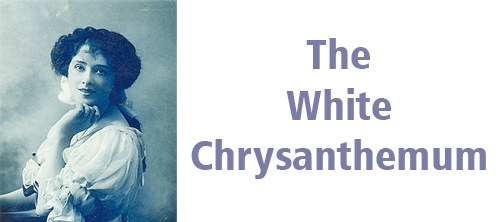Pas de biographie disponible.
Compositeur Musique additionelle Librettiste Parolier Metteur en scène Chorégraphe Producteur création Producteur version

Musical
Musique: Howard Talbot • Paroles: Arthur Anderson • Livret: Arthur Anderson • Leedham Bantock • Production originale: 1 version mentionnée
Dispo: Résumé Synopsis Liste chansons
Genèse:
Résumé: Sybil Cunningham loves Reggie Armitage of the Royal Navy. She has followed him from England to Japan partly to escape an unpleasant engagement in London. They have asked his father's consent to their marriage, and in the meantime, he has arranged for a modest house for her to stay in. His father the admiral, however, has decided that Reggie must marry a wealthy but vivacious American, Cornelia Vanderdecken. Sybil disguises herself as a Japanese girl and hides from Cornelia, and Reggie's friend, Chippy helps her keep up the pretense. But Sybil is distressed to see Reggie with Cornelia and runs away tearfully. Fortunately, Reggie's servant, Sin Chong, and Sybil's cousin, Betty, reveal the true situation to Sybil. In the end, Sybil returns to Reggie, Betty pairs off with Sir Horatio (who will agree to anything she wants), and Chippy lands Cornelia's heart.
Création: 31/8/1905 - Criterion Theatre (Londres) - 179 représ.

Musical
Musique: Howard Talbot • Lionel Monckton • Paroles: Adrian Ross • Percy Greenbank • Livret: Fred Thompson • Percy Greenbank • Production originale: 1 version mentionnée
Dispo: Synopsis Génèse Liste chansons
During the gloomy days of World War I, audiences, including servicemen on leave, wanted light and uplifting entertainment, and they flocked to theatres to see lighthearted musical comedies, a number of which broke box-office records. It opened at the Adelphi Theatre in London on 14 September 1917, and ran for 801 performances – one of the longest runs of any musical theatre piece up to that time.
Genèse: During the gloomy days of World War I, audiences, including servicemen on leave, wanted light and uplifting entertainment, and they flocked to theatres to see lighthearted musical comedies, a number of which broke box-office records. These included The Bing Boys Are Here (1916), Chu Chin Chow (1916), and The Maid of the Mountains (1917). Almost as popular were The Boy, The Happy Day (1916) and Yes, Uncle! (1917). Greenbank had worked on a dozen shows with each of Monckton and Ross from 1900 to the time of The Boy, and Talbot and Thompson were also frequent collaborators of theirs in the first two decades of the 20th century. The plot of The Boy closely follows that of The Magistrate, although character names have been changed, and some of the original dialogue is retained. In the Play Pictorial feature, B.W. Findon's review of the musical praised the singing of Nellie Taylor and Peter Gawthhorne, and the comedy of W. H. Berry, as well as the production in general. It opened at the Adelphi Theatre in London on 14 September 1917, directed by Robert Courtneidge, under the management of Alfred Butt, and ran for 801 performances – one of the longest runs of any musical theatre piece up to that time. The musical was later produced in Australia, starring Gladys Moncrieff. It was also adapted for Broadway as Good Morning, Judge in 1919, by the same creative team, at the Shubert Theatre, running for 140 performances and then touring successfully. Two songs by George Gershwin were added to the score, including "I am so Young," published as "I was so Young (You were so Young)." It starred George Hassell (as Mr. Meebles), Charles King (as Hughie), Mollie King (as Joy Chatterton) and Edward Martindel (as Col. Bagot). Although the piece was revived several times by amateur British groups in the 1930s, it has not been seen since then.
Résumé:
Création: 14/9/1917 - Adelphi Theatre (Londres) - 801 représ.